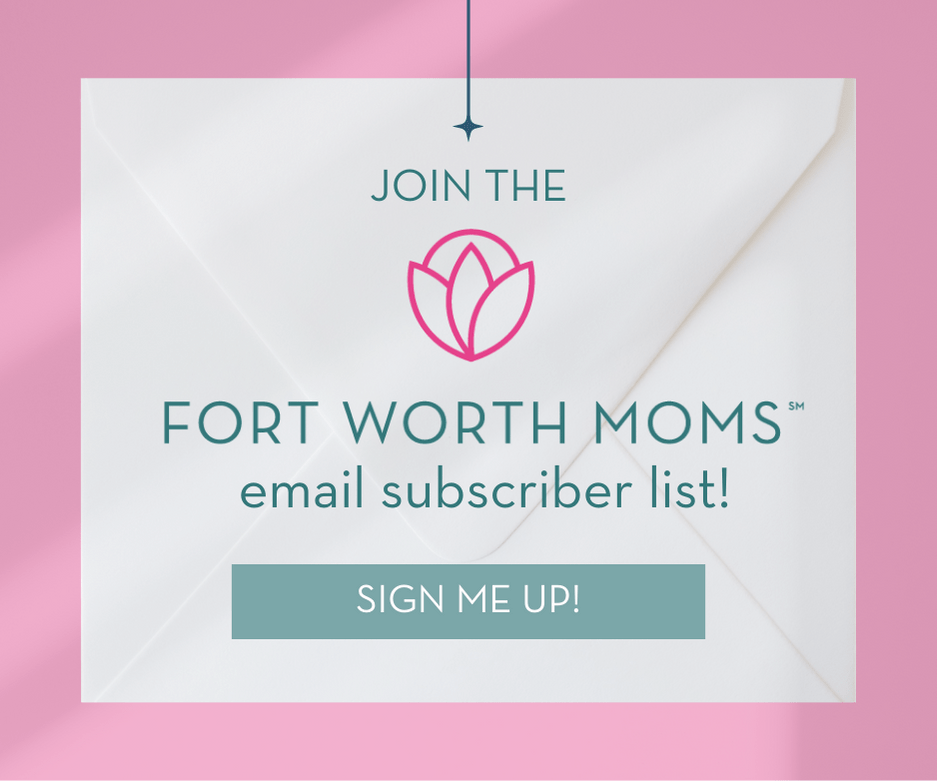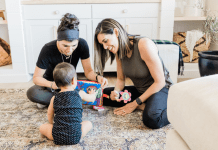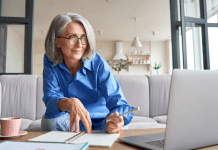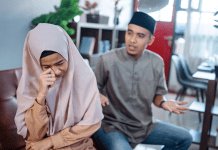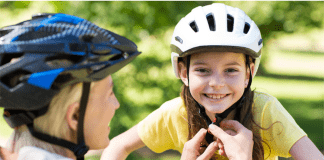Hillary is a friend and a Fort Worth Moms team member; she is the Neighbor Group leader for Fertility Discussion with Tarrant Area Moms. Hillary is also an ovarian cancer survivor.
Fort Worth Moms CEO Emily Y, whose own mother survived ovarian cancer, too, chatted with Hillary to share her story, experiences, and what she most want you to know.
EY: Can you share details — as much as you are comfortable with — about your signs and symptoms before your diagnosis?
H: I had several of the signs and symptoms that are associated with ovarian cancer. I had consistent abdominal pain that had become pretty severe before my diagnosis, unexplained fatigue (I had no energy and was tired all the time), bloating, and frequent urination.
EY: Can you share details — as much as you are comfortable with — about your diagnosis and treatment? In addition to the facts, how did you think and feel through this season?
H: I was diagnosed in 2007 with stage one, grade three ovarian cancer. It was early stage, but the grade of the cancer meant that it was aggressive. I had to do four rounds of chemotherapy in addition to having my left ovary removed.
>> RELATED READ ::I Am a Mother. I Am a Survivor. {Childhood Cancer Awareness} <<
I was 27 when I was diagnosed, and it was a huge shock. I had a history of benign ovarian cysts, and my doctor at the time was keeping an eye on one that had been growing for a while. When I started having the severe abdominal pain and other symptoms, I knew something wasn’t right. I felt like my doctor wasn’t being aggressive enough to figure out what was going on, so I got a second opinion from another doctor. I 100 percent believe that I’m alive today because I got that second opinion. I had laparoscopic surgery to remove the cyst, and it was from the pathology report that I learned I had cancer. From there, I was referred to a gynecologic oncologist who did a second surgery to remove my ovary and managed my chemotherapy.
The timing from my diagnosis to finishing chemo was about four months. During that time, I was really just focused on getting through the treatment. I had some side effects from the chemo; the most difficult for me was losing my hair. My husband shaved my head after the first strands started coming out. We planned it that way because I didn’t want to watch it fall out over time.
I was very fortunate to have a lot of support from those around me – family, friends and co-workers. They really helped to lift my spirits and get me through it.
It wasn’t until after I finished chemo that the weight of my diagnosis really hit me. I knew I had at least five years of follow-up appointments and scans ahead of me, and I was afraid the cancer would come back. Fortunately, it didn’t, but for a long time, I analyzed every little ache and pain.
I also had a hard time trying to transition back to my life the way it was before. You often hear the term “new normal” associated with cancer, and it’s true. Cancer changed me. I wasn’t the same person I was before my diagnosis. I feared things I hadn’t feared before, but I also had a new appreciation for what is most important in life.
Before I was diagnosed, I wasn’t sure if I ever wanted to have children. But then the possibility of not being able to made me realize how much I did want to be a mom. I ended up dealing with several years of infertility after I finished treatment, but we were able to conceive our daughter, Corinne, with the help of an egg donor. She is a joy, and I’m incredibly grateful for the family we have now.
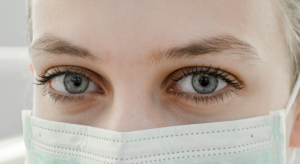 EY: What would you want our readers most to know about ovarian cancer?
EY: What would you want our readers most to know about ovarian cancer?
H: There is no test for ovarian cancer like there is for breast or cervical cancer. Some people think a pap smear tests for ovarian cancer, but it doesn’t. Because there isn’t a test, most people who have ovarian cancer are diagnosed at an advanced stage. It’s rare that ovarian cancer is caught early, so I was very lucky.
I also encourage women to advocate for their own health. It’s important to know the signs and symptoms of ovarian cancer and to seek medical care if you have them. Some of the best advice I’ve heard is to ask your doctor to prove that you don’t have ovarian cancer. The symptoms are vague and can often be attributed to other conditions, so it’s important to investigate and rule out ovarian cancer.
EY: How can readers support friends and/or family members who deal with this disease?
H: Try not to say something generic like, “let me know if you need anything.” That puts it on her to come up with a way for you to help, and she will most likely say she’s fine or doesn’t need anything. Instead, find a way to be there for her: Start a meal train for her family, help with grocery shopping or household chores, offer to watch her kids, or take her to medical appointments.
>> RELATED READ :: Kids with Cancer Meet Cowboy Heroes <<
Ask how she’s doing and let her know you’re there for her if she wants to talk, and then leave it at that. Don’t dig too deep with the questions because she may not want to talk about it. Also, don’t feel like you can’t talk about what’s going on in your life or the typical things you usually discuss. Cancer can be all consuming, and she may welcome the opportunity to talk about something else.
EY: What ways do you celebrate being a survivor?
H: I usually celebrate my “cancerversary” on June 5 by doing something fun with my family.
EY: What organizations do you support for ovarian cancer awareness month?
H: One of the organizations I support is SpeakGyno. My friend Ni Guttenfelder, who is a fellow survivor, started it to raise awareness about the different types of gynecological cancers (including ovarian) and to provide support for survivors and caregivers. The SpeakGyno podcast series is a great source of information and includes interviews with survivors and caregivers sharing their stories.
The National Ovarian Cancer Coalition (NOCC) is another great organization. It has a very active DFW chapter. I got involved with NOCC after I finished treatment to connect with other survivors, and they have been a wonderful source of support over the years.




